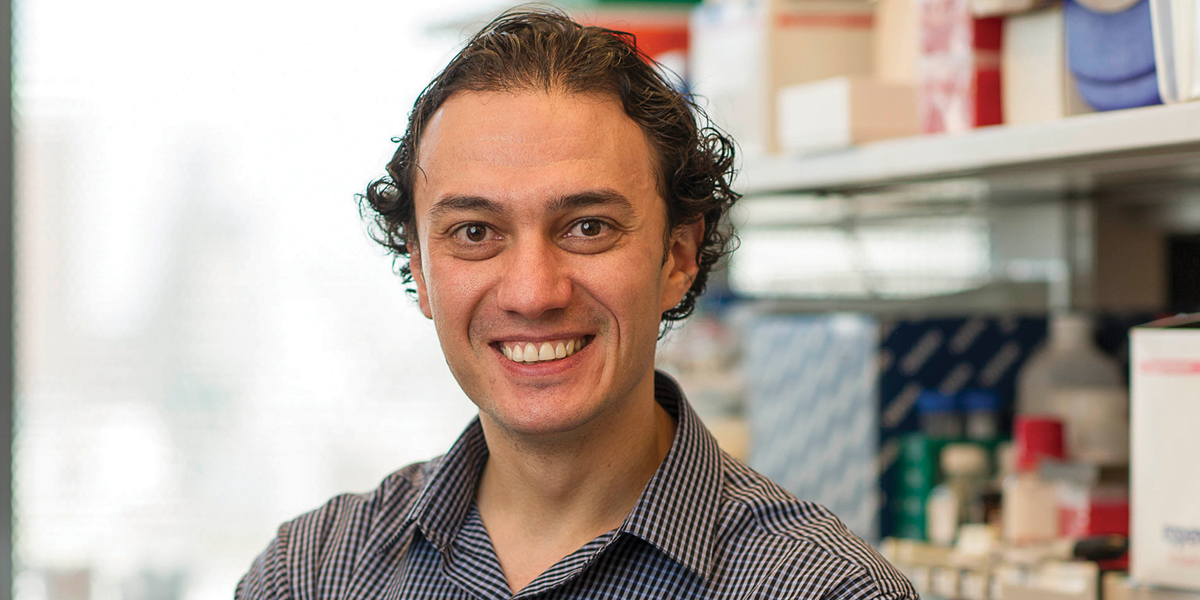Cancer’s white-hat hacker
An engineered bird virus delivered together with an immunotherapy in mouse models crashes tumor defenses.
Dmitriy Zamarin brought useful expertise with him when he joined the Ludwig MSK in 2012. A clinical oncologist and research virologist, Zamarin has long explored the use of viruses to destroy tumors. Oncolytic virotherapy, as the strategy is known, has fascinated researchers since at least the 1950s and is today enjoying something of a renaissance in academic and industry labs.
Zamarin is especially interested in using the Newcastle disease virus—which primarily afflicts birds but also has a taste for cancer cells—in combination with immunotherapy to treat cancers. In 2014, he passed a major milestone en route to that goal. In a study he led with Ludwig’s Jedd Wolchok and James Allison of the MD Anderson Cancer Center in Houston, Zamarin showed that the combination can have a potent effect on tumors in mice.
Oncolytic viruses multiply so furiously in cancer cells that they pop the cells open from the inside. In doing so, they can also revive immune responses against tumors. Yet the approach has not worked very well so far in people, in part because the immune system often clears the virus before it has a chance to reach its target, and in part because tumors suppress immune responses in a variety of ways.
To circumvent these problems, Zamarin and his colleagues transplanted one melanoma tumor on each flank of a mouse, and then directly injected one of them with the Newcastle disease virus. This ensured that the virus would get into cancer cells before the immune cells could clear it. As the team expected, the injected tumors shrank dramatically.
“The surprise,” says Zamarin, “came when we looked at the tumor on the other side.”
Those tumors, though intact, were now being invaded by immune cells. When these mice were given a dose of anti-CTLA-4 antibody (a mouse version of a human drug called ipilimumab), which boosts killer T cells of the immune system, both tumors were destroyed. Better yet, the effect was durable—newly transplanted tumors could not gain a foothold in treated mice. It was also inducible against prostate and colon tumors, which are typically resistant to immunotherapy.
Zamarin is now working with his colleagues to prepare the virus for human studies. “We hope that our findings can be translated into a therapy that will benefit our patients,” says Zamarin. “That’s the ultimate goal of the work we do here.”
REFERENCE
Zamarin D , Holmgaard RB, Subudhi SK, Park JS, Mansour M, Palese P, Merghoub T, Wolchok JD, Allison JP. Localized oncolytic virotherapy overcomes systemic tumor resistance to immune checkpoint blockade immunotherapy. Sci Transl Med. 2014 Mar 5;6(226):226ra32. doi: 10.1126/scitranslmed.3008095.
